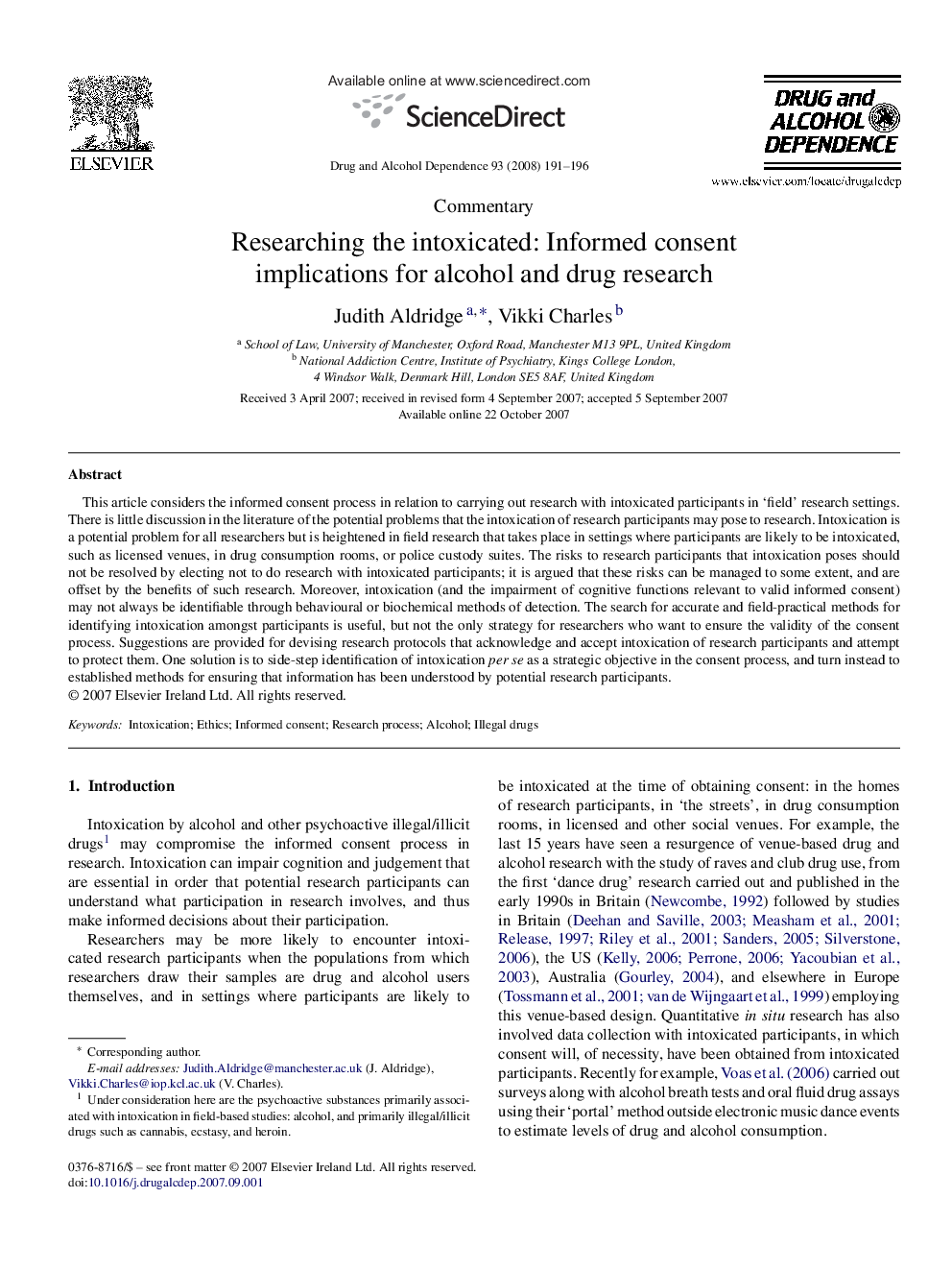| Article ID | Journal | Published Year | Pages | File Type |
|---|---|---|---|---|
| 1070797 | Drug and Alcohol Dependence | 2008 | 6 Pages |
This article considers the informed consent process in relation to carrying out research with intoxicated participants in ‘field’ research settings. There is little discussion in the literature of the potential problems that the intoxication of research participants may pose to research. Intoxication is a potential problem for all researchers but is heightened in field research that takes place in settings where participants are likely to be intoxicated, such as licensed venues, in drug consumption rooms, or police custody suites. The risks to research participants that intoxication poses should not be resolved by electing not to do research with intoxicated participants; it is argued that these risks can be managed to some extent, and are offset by the benefits of such research. Moreover, intoxication (and the impairment of cognitive functions relevant to valid informed consent) may not always be identifiable through behavioural or biochemical methods of detection. The search for accurate and field-practical methods for identifying intoxication amongst participants is useful, but not the only strategy for researchers who want to ensure the validity of the consent process. Suggestions are provided for devising research protocols that acknowledge and accept intoxication of research participants and attempt to protect them. One solution is to side-step identification of intoxication per se as a strategic objective in the consent process, and turn instead to established methods for ensuring that information has been understood by potential research participants.
